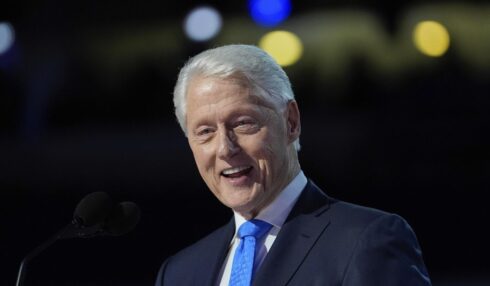Former U.S. President Bill Clinton has been discharged from MedStar Georgetown University Hospital in Washington, D.C., after being treated for the flu. His spokesperson, Angel Ureña, confirmed the news on Tuesday, emphasizing Clinton’s gratitude for the care he received.
“He and his family are deeply grateful for the exceptional care provided by the team at MedStar Georgetown University Hospital and are touched by the kind messages and well wishes he received,” Ureña shared on X, formerly known as Twitter. Clinton was admitted on Monday evening for observation and tests after experiencing a fever.
Health Challenges Over the Years
The 78-year-old former president has faced multiple health challenges in recent decades. Notably, in 2004, he underwent quadruple bypass surgery at the age of 58 after doctors discovered signs of extensive heart disease. Ten years later, Clinton had a clogged artery opened following complaints of chest pains.
Bill Clinton’s most recent hospitalization prior to this week occurred in 2021 when he was admitted for six days in California due to a severe infection that spread to his bloodstream. Despite these setbacks, Bill Clinton has maintained an active lifestyle and focused on improving his health.
A History of Health Challenges
This recent hospitalization is one in a series of health concerns for Bill Clinton. In October 2021, he was admitted for five days due to a blood infection caused by a urinary tract issue. The former president has also faced significant cardiac challenges, including undergoing quadruple bypass surgery in 2004 after being diagnosed with heart disease.
Bill Clinton has since made major lifestyle adjustments to manage his health, such as adopting a vegetarian diet and speaking openly about his medical journey. These changes underscore his resilience and commitment to maintaining his health despite his history of serious medical conditions.
A Shift to Veganism and Advocacy for Health
Bill Clinton’s dedication to health took a significant turn after his second heart procedure. Known for his fondness for rich and fatty foods during his presidency, he adopted a vegan diet to improve his heart health. In a 2016 interview with Politico, he credited the lifestyle change with saving his life, stating, “I might not be around if I hadn’t become a vegan. It’s great.”
Beyond his personal health, Clinton has championed public health initiatives. His Clinton Foundation partnered with the American Heart Association to form the Alliance for a Healthier Generation, an organization focused on combating childhood obesity and promoting healthy living.
Continued Engagement and Recent Achievements
Despite his health concerns, Bill Clinton remains active in public life. This year, he joined the presidential campaign trail, supporting Vice President Kamala Harris’s bid for the White House. His appearances underscored his enduring influence and commitment to the Democratic Party.
In November, Clinton published his latest memoir, Citizen: My Life After the White House. The book reflects on his post-presidential years, including his humanitarian efforts and his evolving perspective on health and leadership.
Clinton’s recovery marks another chapter in his resilience, inspiring admirers worldwide as he continues to contribute to public discourse and policy.
Bill Clinton’s Resilience Amid Public Attention
As a prominent figure in U.S. history, Clinton’s health has frequently been a topic of public interest. In November 2022, he tested positive for COVID-19, adding to the scrutiny surrounding his well-being. However, his ability to recover from various health challenges reflects his determination and the support of his medical team and family.
Clinton served as the 42nd President of the United States from 1993 to 2001 and remains a respected statesman. His health updates are closely monitored by supporters and political analysts alike, who see his experiences as reflective of broader issues in aging leadership.
Legacy of a Younger Former President
Despite his health challenges, Clinton continues to be active in public life. He is currently the second-youngest living former president, following 63-year-old Barack Obama. This distinction often brings attention to his health, particularly in comparison to older former presidents.
As a former leader who has shaped significant aspects of U.S. policy and international relations, Clinton’s well-being remains a matter of global interest. His recent recovery is a testament to modern medical advancements and his personal dedication to overcoming health obstacles.














